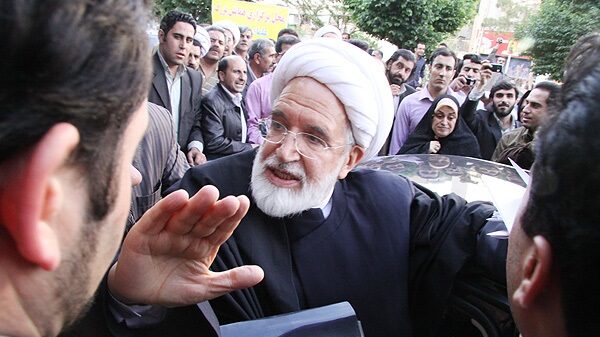Iran To Free Opposition Leader Mehdi Karroubi After 14 Years
Iranian opposition leader Mehdi Karroubi, 87, will be released from house arrest after 14 years, his son, Hossein Karroubi, told Iranian media on Monday. The former parliament speaker and two-time presidential candidate was detained in 2011 after advocating for rallies supporting the Arab Spring movements.
Hossein Karroubi informed the state-run Islamic Republic News Agency that security officials notified his father of the release, stating, “My father was told by security agents that his house arrest will end today.” Security personnel will reportedly remain at their residence until April 8 due to ongoing security concerns.
This holiday season, give to:
Truth and understanding
The Media Line's intrepid correspondents are in Israel, Gaza, Lebanon, Syria and Pakistan providing first-person reporting.
They all said they cover it.
We see it.
We report with just one agenda: the truth.


Mehdi Karroubi, a prominent Shiite cleric, became a central figure in Iran’s reformist movement after contesting the 2009 presidential election. Alongside former Prime Minister Mir Hossein Mousavi, he challenged the election results, alleging that incumbent President Mahmoud Ahmadinejad had been elected fraudulently. This led to a mass protest movement known as the Green Movement, which was met with a severe crackdown by authorities.
In February 2011, Karroubi, Mousavi, and Mousavi’s wife, Zahra Rahnavard, were placed under house arrest without formal charges after calling for demonstrations in solidarity with pro-democracy uprisings in Egypt and Tunisia. While Karroubi’s confinement conditions have eased over the years, with limited family visits permitted, his health has deteriorated, necessitating multiple hospitalizations for heart-related issues.
During his election campaign, Iranian President Masoud Pezeshkian pledged to work toward the release of opposition figures under house arrest. Karroubi’s release marks a significant step in addressing long-standing political grievances within the country.

